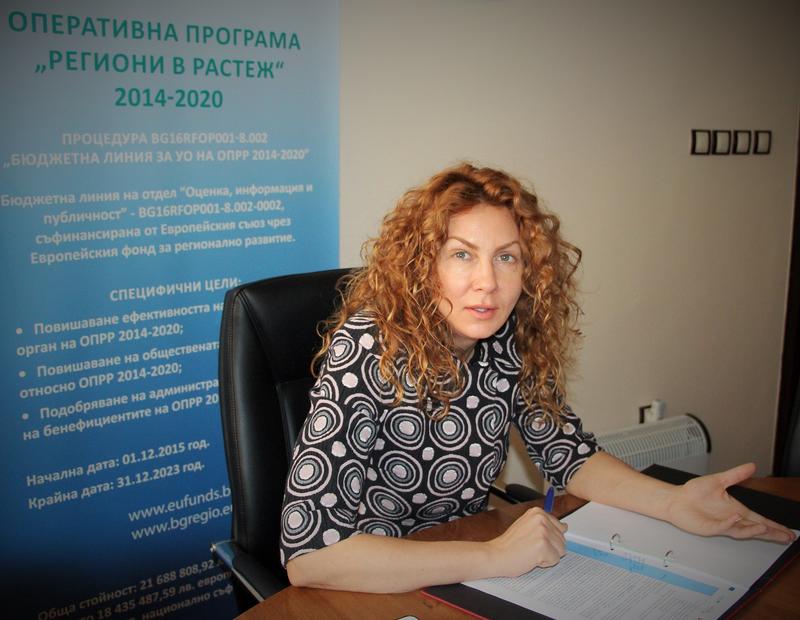Deputy Minister Denitsa Nikolova: We set strategic projects with Serbia and Romania as part of the priorities of the Danube Strategy
Deputy Minister Denitsa Nikolova: We set strategic projects with Serbia and Romania as part of the priorities
By Ministry of Regional Development and Public Works
Bulgaria takes a strategic approach to the implementation of the Danube Strategy, focusing its priorities in the national programming documents and operational programmes for the period 2021-2027. This was stated by Deputy Minister of Regional Development and Public Works Denitsa Nikolova, who participated in an online workshop of the National Coordinators of the Danube Strategy, organised by Slovakia, which holds the rotating presidency.
During the meeting, progress and future steps on the process of integrating the priorities of the Danube Strategy into the future programmes for the period 2021-2027, the so-called "embedding process", were discussed.
Deputy Minister Nikolova pointed out that Bulgaria, together with Romania and Serbia, have envisaged three strategic projects for the development of the Danube regions, which will be financed under the European cross-border programmes. With Romania, our country is developing a project for a comprehensive feasibility study of the Bulgarian and Romanian banks to show the needs and necessity for the construction of new bridges, river ports and ferry connections, as well as a project for the construction of a cycle path - part of the missing last section of the Euro Velo 6 route on Bulgarian and Romanian territory. A joint project is being developed with Serbia for the supply of modern equipment and training of law enforcement services and the population for protection against natural disasters. "The best way to achieve tangible results for the Danube region is to identify a number of strategic initiatives within a limited set of priorities, where the participating countries in the Danube Strategy will commit to provide the necessary funds," Denitsa Nikolova said.
The Deputy Regional Minister supported the establishment of a network of Managing Authorities responsible for the programmes financed by the ESIF as a tool for coordinating and monitoring the implementation of the actions and projects of the Danube Strategy included in the programmes at national level. She said it would be particularly important for coordinating the process in future programming periods.
The contribution of the future Danube Programme to the management of the Danube Strategy was also discussed. According to Deputy Minister Nikolova, the financial support of the Programme for the management of the Strategy should continue for the period 2021-2027, as well as providing financial support for the Danube Coordination Unit.
The Danube Strategy was adopted by the European Commission in 2010 and covers 14 countries. The strategy relies on a regional approach - promoting cooperation between a wide range of stakeholders to tackle common challenges, but without creating new institutions.
The Danube Strategy is based on four main priority pillars - connectivity, environment, building prosperity and sustainability of the region.






